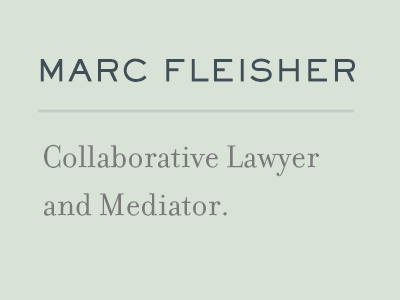Collaborative Practice Explained
What is Collaborative Practice?
In Collaborative Practice, the lawyers assist you in resolving issues through a cooperative approach rather than with adversarial strategies. It is a dispute resolution process that avoids the economic and emotional costs of preparing for and going to court – and the risks of letting a judge decide the issues. This non-adversarial approach allows you, your spouse and the lawyers to generate viable options and create solutions which will work for each of you and your children. The process is informed by interest-based settlement discussions rather than coercion or posturing.
Why choose Collaborative Practice?
- REDUCE PRESSURE. Everyone focuses on settlement in four-way meetings without the constant threat of going to court.
- REDUCE FEES. The process is typically less time-consuming and less costly than litigation.
- PARTICIPATE DIRECTLY. You are a vital part of the settlement team, which consists of both parties and both lawyers.
- RESOLVE ISSUES. In Collaborative Practice, problem solving is more important than fighting. Work able and fair solutions are sought.
- HAVE SUPPORT. No one negotiates alone; you are assisted by lawyers committed to using a constructive approach.
How do Collaborative Lawyers work?
- The lawyers pledge at the outset not to go to court or threaten to go to court.
- Informal four-person conferences are used in which the future of your family is the focus.
- Complete exchange of information is made in an informal setting.
- The lawyers are concerned about the process as well as the outcome.
- Problem-solving techniques, in which the spouses’ interests, concerns and needs are considered to produce an agreement that is workable for everyone.
- You, your spouse, and each lawyer work as a settlement team, not as adversaries.
- The lawyers do not make proposals that would seem unreasonable if presented to them.
Working with other professionals
Collaborative Practice is interdisciplinary. To the extent appropriate for a particular case, the Collaborative team may include financial neutrals, mental health professionals who work as “divorce coaches,” and child specialists.
